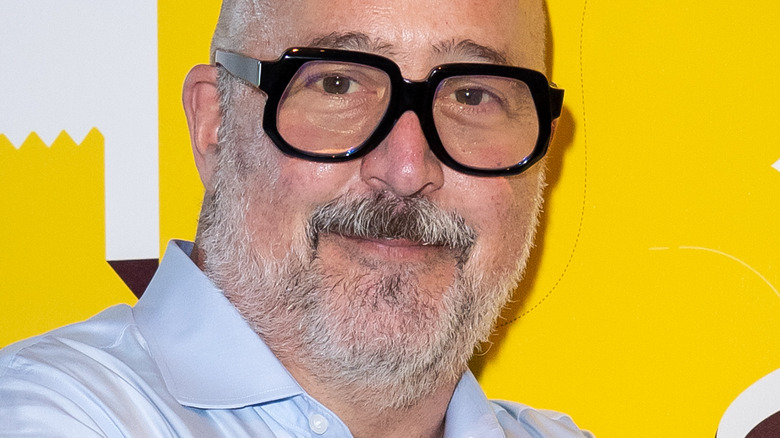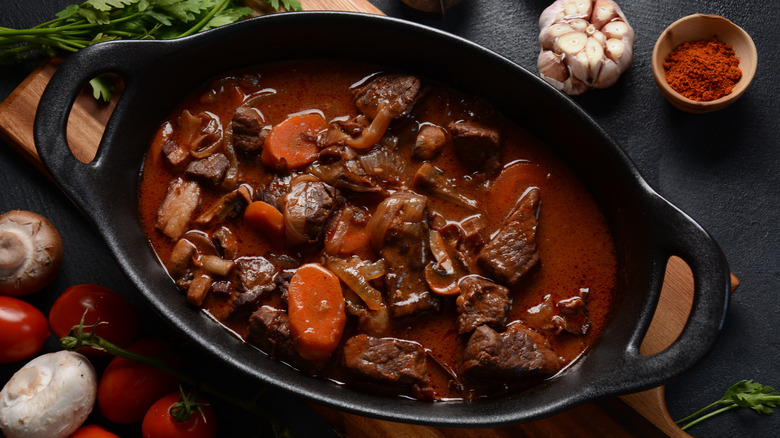How Andrew Zimmern Feels About Cooking With Alcohol In Sobriety
Cooking with alcohol can be complicated, but it comes with benefits, too. And when simmered or baked into a dish, it usually only leaves the taste behind, with little to no alcohol content. Its ability to bond "with both fat and water molecules," per Food52, allows it to enhance the aroma and make the experience of eating the dish that much better.
Questions inevitably pop up, such as whether you can get drunk eating vodka sauce or whether the alcohol will always burn off when exposed to high cooking temperatures. But there are some infrequently considered questions, including one that chef Andrew Zimmern answered in a social media post.
On his Instagram account, the celebrity chef and restaurateur mentioned a question a fan posed to him during a video AMA regarding his openness about "your past and your addiction" in relation to "cooking with alcohol as a person in recovery." Ever the level-headed fellow, Zimmern posted a video response noting that he has experimented and found a way to work alcohol into dishes without it affecting his progress or sobriety.
Alcohol largely burns off during cooking
Using beef stew as an example, Zimmern explained that if you have enough surface area in your pot and let the wine simmer for, say, two hours, then about 99.9% of the alcohol will burn off, and the dish won't even taste like wine. However, if you add a tablespoon or two of straight booze to a raw product like whipped cream and then use that as a garnish, it will inevitably taste boozy. For Zimmern, this doesn't trigger a craving but actually turns him off, as he finds the bite of the alcohol unappealing.
Fans seemed thankful for his honesty, with one commenting, "As someone who's nearly four years sober I appreciate you posting this. I tend to avoid anything with uncooked alcohol in it." At the bottom of his caption, Zimmern added the hashtag #recoveryispossible, pointing to the potential for recovery while still being able to utilize alcohol in cooking.
If you or anyone you know is struggling with addiction issues, help is available. Visit the Substance Abuse and Mental Health Services Administration website or contact SAMHSA's National Helpline at 1-800-662-HELP (4357).

